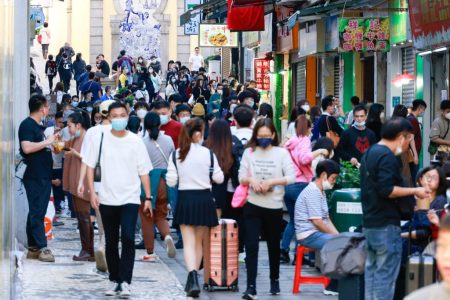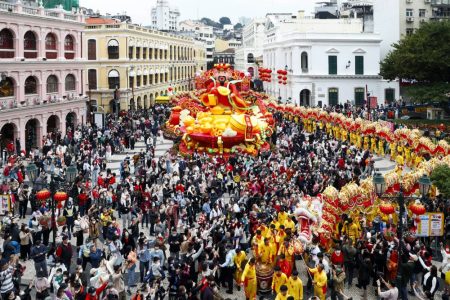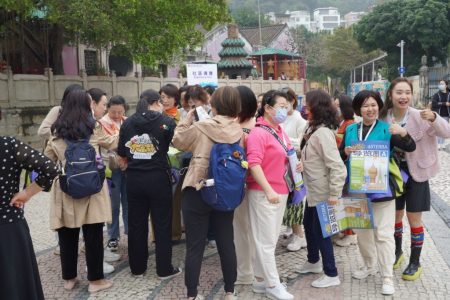The Macau Government Tourism Office (MGTO) announced Wednesday that it will install a number of robots that can answer people’s enquiries about tourism information – by listening to oral speech – in various locations in the city.
The robot is called “chatbot”.
The office hosted a press conference at the Transport Bureau (DSAT) Building to brief the media about the preliminary achievements of the government’s smart tourism project that is ongoing.
Addressing the press conference, MGTO Director Maria Helena de Senna Fernandes noted that the Macau Tourism Industry Development Master Plan formulated by her bureau last year lays out a range of strategies to promote the city’s smart tourism development.
Senna Fernandes said that after the local government signed the Framework Agreement of Strategic Cooperation on Smart City Development with Alibaba Group last year, her office embarked on the first phase of cooperation with Alibaba Cloud – a subsidiary of Alibaba Group – to promote the city’s smart tourism development.
The partnership covers three projects, namely the “Tourism Information Interchange Platform”, “Application for Visitor Insights” and “Smart Application for Visitor Flows”, by fully using the leading expertise of Alibaba Cloud on technologies such as cloud computing and big data application, she said.
Senna Fernandes said that the three projects have basically been completed and are expected to come into service early next year.
The tourism chief said she believes that the three projects will generate convenient experiences for visitors, local tourism businesses and residents. As technology applications continue to multiply in the smart tourism sector, the quality of travel experiences will significantly improve, leading to a reduced impact of visitor crowds on residents, she forecast.
During the press conference, Herbert Choi Cheong Hong, the acting chief of the MGTO Organisational Planning and Development Department, briefed the media about details of the three new projects – “Tourism Information Interchange Platform”, “Application for Visitor Insights” and “Smart Application for Visitor Flows”.
Choi also said that his office’s new website for travel destination promotion would come into use in the second quarter of next year.
Choi said that his office would launch “chatbots” that can listen to and answer people’s enquires on tourism information on online social networking sites in the second quarter of next year.
According to Choi, in addition to the intangible one on social networking sites, his office will also launch tangible “chatbots” – robots – and install them at different locations in the city.
Senna Fernandes said that her office did not have a timetable as to when the tangible “chatbots” will come into use, as her office and the company developing the “chatbots” – a local technology company – were still jointly solving technical problems. She said that the robot developed by the company was initially for home use such as accompanying senior citizens living alone, adding that therefore the company has been making technical adjustments and improvements to the tangible “chatbots” to make them suitable to be used in public venues.
Senna Fernandes said that the tangible “chatbots” would use Cantonese, Putonghua and English in the first phase of coming into use.
She also said that in the first phase her office would install 12 tangible “chatbots” at her office’s various tourist information centres across the city.
The “chatbots” are known as “Siu Ma Goh” (“Little Horse Brother” and Singou Butler.






